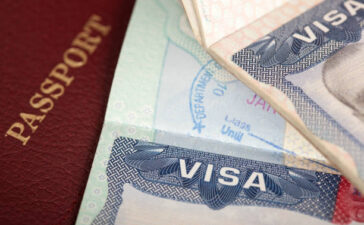Settling in Canada – Essential Tips for Newcomers to Thrive
Newcomers to Canada can find it difficult Settling in Canada. But it’s important for them to keep in mind why they moved here and the goals that they want to accomplish here.
Advertisement
Settlement agencies can help them navigate the process, and they may be able to connect them with local support services that are free of charge.
1. Find a Place to Live
It’s important for newcomers to find a place to live in Canada before they arrive. This helps to avoid overspending while they’re trying to settle in their new home. Many cities in Canada have houses and apartments for rent, and it’s common for people to post ads on websites like Craigslist and Kijiji. Some settlement agencies can help people find housing as well.
Vancouver, a city in British Columbia, is often ranked as one of the best places to live in Canada by newcomers and locals alike. It offers the perfect combination of breathtaking natural beauty and modern urban living. The city also has a variety of family-friendly neighbourhoods and a thriving economy.
Another city to consider for a newcomer’s move to Canada is Calgary, Alberta. This Canadian city is known for its vibrant arts and culture scene and booming economy. It also has a number of family-friendly neighborhoods and is close to the Rocky Mountains, making it a great place for newcomers looking for a balanced lifestyle.
Quebec City, a beautiful city in Quebec, is another Canadian city that offers a unique blend of modern amenities and quaint historic charm. The city’s oldest part is even a UNESCO World Heritage Site, making it a truly memorable place to live.
Advertisement
2. Get a Driver’s License while Settling in Canada
A driver’s license is an official government document issued by a province or territory that allows its holders to operate motor vehicles on public roads. As a newcomer, you will likely need to obtain a Canadian driver’s licence once your valid international driving permit expires if you intend to drive in Canada.
It is also a good idea to familiarize yourself with the road signs and rules of your new province/territory, as they may differ significantly from those of your home country. Driving in winter is particularly challenging and requires some preparation.
If you have a car, you will need to obtain Canadian auto insurance, which is mandatory. You should note that driving under the influence of alcohol is not allowed in Canada, and serious offenses may lead to a suspension of your vehicle’s registration or deportation (see more information on this here).
On the banking front, most traditional Canadian banks require their clients to be residents of the country in order to open an account. However, it is possible to start the process of opening a Canadian bank account before you arrive, as some banks allow this if you have immigration papers that confirm your intention to reside in the country.
Alternatively, you could also consider opening a specialist online multi-currency bank account with an international provider such as Wise before you relocate to Canada. This will enable you to have access to a CAD bank account with low cost currency exchange when you arrive, without the need to meet the specific requirements of a bricks-and-mortar Canadian bank.
3. Open a Bank Account
As Canada’s population continues to shrink, the nation is looking to attract skilled migrants through Federal immigration programs such as Express Entry and Provincial Nominee Programs. Prospective immigrants should research the programs they are interested in before submitting an application.
Before you start searching for jobs, you should also make sure to open a bank account and get your Social Insurance Number (SIN). This will save you time down the road as most employers will require it in order to hire you.
You can do this by visiting your local Service Canada office on arrival. You will need to bring your passport, work permit or permanent resident card along with some proof of address such as a utility bill, TD Bank statement or the address of your home stay host.
The cost of living in Canada varies depending on where you live and what you do for work. Some provinces, such as Ontario, have higher costs of living than others. It is also important to know that Canada has a two-language system, with French and English being its official languages. Therefore, it may be more difficult to find a job if you don’t speak French.
If you are a newcomer to the country and still need to gain more work experience, it is worth looking into programs that can provide you with work experience and a Canadian work permit while providing the opportunity to network with potential employers. These programs will often charge a fee, but can be well worth it in the long run as you prepare for your career in the land of maple syrup and hockey.
4. Find a Job while Settling in Canada
Canada has a high standard of living, welcoming immigration policies and many jobs available for skilled professionals. Finding a job can be challenging, but proactive planning and research can help you improve your chances of success.
You can start your search by browsing open positions, reputable recruitment companies and industry-specific websites. You can also connect with professionals who have successfully immigrated to Canada for their insights and guidance on the process.
When looking for a job, you should consider what language you’ll use at work. Most Canadians speak English, but French is an official language as well. If you’re proficient in both languages, you will have a significant advantage when it comes to employment opportunities.
Another thing to keep in mind is the different work culture in each province. While the national government sets the overall tone, many of the provinces set their own rules and requirements for applicants. This can be a good or bad thing depending on your individual circumstances.
Finally, you can also check with your local Job Bank. This website offers a variety of tools that can help you find a job in Canada, including career quizzes and matching services for jobs. It’s a great resource for anyone who is trying to find a job in a foreign country, but it’s especially useful for those who are newcomers.
5. Get to Know Your Neighbours
Getting to know your neighbours is a great way to get a sense of community. It also helps to be able to call on people in your neighbourhood for help if needed, whether it’s moving a couch or borrowing a cup of sugar. Getting to know your neighbours can also be very helpful if there is an emergency in the area and you need to contact the police or fire department.
In addition, there are a number of online resources available to help newcomers get settled in Canada, such as websites that connect newcomers with potential employers and help them with the employment process. There are also local organizations that provide assistance to newcomers, such as helping them with registering children in school and finding housing.
For many people, the most important step in settling in Canada is finding a place to live. This can be a difficult task, especially when it’s your first time living in a new country. By following the tips in this article, you can make the process of finding a home in Canada as easy as possible. This will allow you to enjoy all that this beautiful country has to offer.




